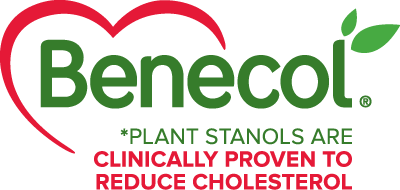Baked Acorn Squash
Acorn squash is high in magnesium, vitamin A, and vitamin C. Vitamin C is an antioxidant that keeps the immune system healthy, something we’re all focused on this year. One cup of cooked acorn squash delivers a whopping 9 grams of fiber - both insoluble and soluble. Soluble fiber is the type that lowers LDL cholesterol. Acorn squash contains carotenoids, a group of antioxidants that wards of chronic diseases like diabetes, cancer, and eye conditions, and is responsible for the orange-ish color of acorn squash.
Acorn Squash Nutrition Facts
Serving size: 1 cup cooked cubes
Calories: 115
Total fat: 0.5 g
Total carbohydrates: 30 g
Total sugar: 4 g
Fiber: 9 g
Protein: 2.5 g
Roasted Carrots
Carrots are one of the most concentrated sources of carotenoids, specifically beta-carotene. Studies show that carotenoids can lower risk of cardiovascular disease by lowering blood pressure and inflammatory compounds like C-reactive protein in the body. Choose colorful carrots like orange, yellow, and purple for a variety of heart-healthy antioxidants. Different colors have different nutrients. Add Benecol® spreads before or after roasting carrots for an easy way to get your cholesterol-lowering plant stanols.
Carrots Nutrition Facts
Serving size: 5 long roasted carrots
Calories: 150
Total fat: 0 g
Total carbohydrates: 35 g
Total sugar: 25 g
Fiber: 10 g
Protein: 5 g
Roasted Green Beans
Green beans are a two-for-one, delivering four grams of protein and four grams of fiber, with only 12 grams of total carbohydrates. Roast with pine nuts or sliced almonds for heart-healthy fats. Green beans don’t contain any cholesterol, and in fact, the soluble fiber they provide can help lower LDL cholesterol. Buy fresh green beans instead of canned to nix the sodium, which when eaten in excess can raise blood pressure.
Green Beans Nutrition Facts
Serving size: 2 cups
Calories: 60
Total fat: 0 g
Total carbohydrates: 12 g
Total sugar: 6 g
Fiber: 4 g
Protein: 4 g
Cranberries
What’s more Thanksgiving-y than cranberries? In fact, this may be the only time of year you actually consume whole cranberries (it doesn't have to be that way though - add them to your oatmeal before microwaving for a delicious breakfast!).
Cranberries are chock-full of potent, heart-healthy antioxidants. Studies show that cranberries and cranberry juice can help lower LDL (“bad”) cholesterol and triglycerides. The compounds in cranberries also keep arteries healthy and blood circulating properly, which in turn can help lower blood pressure. Further, a 2015 study found that C-reactive protein, a marker of inflammation tied to cardiovascular health, was lower in individuals who drank cranberry juice compared to a placebo drink.
Cranberry Nutrition Facts
Serving size: ⅓ cup
Calories: 140
Total fat: 0 g
Total carbohydrates: 33 g
Total sugar: 26 g
Fiber: 2 g
Protein: 0 g
Mashed Potatoes
Potatoes are a starchy vegetable - meaning they contain more total carbohydrates than other veggies like green beans or carrots. But that doesn't mean they’re bad! In fact, potatoes are packed with potassium, which relaxes the walls of blood vessels and lowers blood pressure. White potatoes have more potassium than sweet potatoes and sweet potatoes have more vitamin A than white potatoes. Both should be included in a heart-healthy diet, so go ahead and add them to your Thanksgiving dinner. Just swap the butter for Benecol® to make them even more heart-healthy!
Mashed Potatoes Nutrition Facts
Serving size: 1 cup
Calories: 280
Total fat: 10 g
Total carbohydrates: 44 g
Total sugar: 5 g
Fiber: 3 g
Protein: 5.5 g






